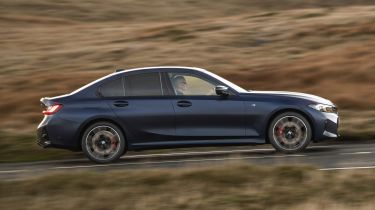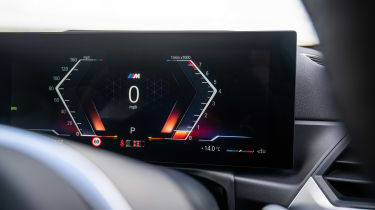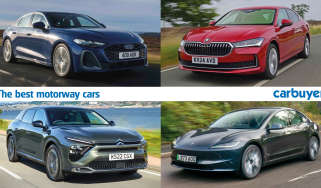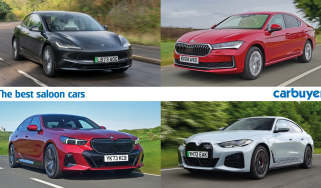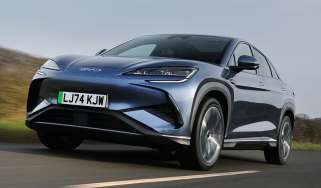BMW 3 Series review – MPG, running costs & CO2
BMW 3 Series petrol and diesel engines are economical, and the 330e hybrid is even better
While diesel power has been a mainstay of the BMW 3 Series lineup for some time, its fall in popularity means the latest 2024 revisions have removed it, leaving just petrol and plug-in hybrid engines to make up the range.
Whichever version you choose, you can take comfort in the knowledge that the latest thinking in aerodynamics – including features such as an active front grille to manage airflow – has gone into making sure the 3 Series is impressively fuel-efficient.
BMW 3 Series MPG & CO2
The entry-level BMW 320i is relatively economical for a petrol engine and achieves up to 43.5mpg. It won’t be the best option for company car buyers, however, as emissions range from 147-155g/km.
The BMW M340i has a relatively large engine, making it the least economical petrol engine in the standard 3 Series range, with fuel economy of up to 34.9mpg and high CO2 emissions of 182g/km. The M3, of course, is more powerful and less economical still, achieving up to just 28mpg and producing 228g/km of CO2.
If it’s out-and-out fuel economy that you’re after, or want low CO2 emissions to make for low company car BiK rates, then look no further than the BMW 330e plug-in hybrid. It boasts lofty fuel economy figures of up to 353.1mpg thanks to its ability to travel for up to 62 miles on electricity, which should come in handy for short trips around town. Impressive, but the Mercedes C300e can travel even further on electricity, getting up to 68 miles from its battery.
More reviews
Bear in mind that these figures are only feasible if you regularly keep your 3 Series charged up, and that once the battery is depleted fuel economy will take a big hit. CO2 emissions for the 330e come in at just 19g/km, putting it into a lower BiK band for company car buyers than the petrol, but still costing quite a bit more than electric rivals like the Tesla Model 3 and Hyundai Ioniq 6.
Now that all 3 Series models cost over £40,000, they are all liable for the additional premium car surcharge, which means from years two to six you’ll have to pay an extra £410 per year on top of the standard rate of tax. Most 3 Series models’ standard rate of tax is £190 per year, but the plug-in hybrid qualifies for a discount of £10 per year given that it’s classified as an alternative fuel vehicle.
Insurance
The BMW 3 Series is an upmarket car but the insurance groups are, for the most part, fairly reasonable. The 320i sits in group 28, while the 330e plug-in hybrid models sit in groups 33 and 34. Above these sit the sporty M340i models in group 38, and the most expensive to insure is the full-fat M3 in group 41.
Servicing
Like all BMWs, the 3 Series uses sensors and oil-quality monitors to determine when routine maintenance is required. Typically, visits to the workshop will be called for between one and two years apart, with fewer than 20,000 miles elapsing between services. Certain components, such as spark plugs on petrol engines, and fuel and air filters, will need occasional replacement, and a service contract will enable you to budget for these items more easily. Your BMW dealer will be able to arrange a contract to match your driving requirements.
Warranty
BMW provides all new car buyers with a three-year, unlimited-mileage warranty that includes three years of BMW Emergency Service cover. It compares directly to the policy Mercedes gives its customers and beats Audi's warranty by having no mileage limit. At the end of your warranty, it can be followed up by a 'BMW Insured Warranty' on a year-by-year basis, although there are certain exclusions under such policies.
